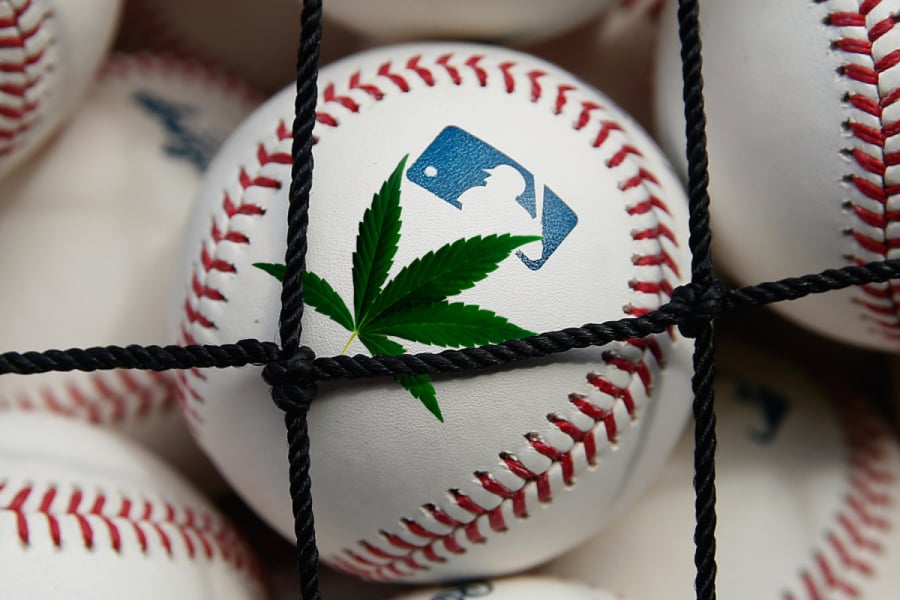Major League Baseball has removed marijuana from its list of “drugs of abuse” and announced that it will begin testing players for opioids after the league and the MLB Player’s Association agreed on new changes to the Joint Drug Program on Thursday.
As ESPN noted, marijuana offenses could often lead to a player being hit with a $35,000 fine per violation, but the changes to the policy mean marijuana-related offenses will now be treated the same as alcohol-related offenses. Players who test positive for marijuana will now be subject to a mandatory evaluation and will have the option of receiving treatment. Teams and the commissioner’s office can also discipline the player in response to “certain conduct.”
Today, @MLB and the @MLB_PLAYERS jointly announced significant changes to the Drug of Abuse provisions of the Joint Drug Prevention and Treatment Program. pic.twitter.com/jIie1JDVAg
— MLB Communications (@MLB_PR) December 12, 2019
Speaking with ESPN, MLBPA head Tony Clark said the changes to league’s marijuana policy were partly in response to the growth of marijuana legalization around the country. “It was a part of a larger conversation that was reflective of the attitudes changing in many parts of the country,” he said.
These changes will also be implemented in the minor leagues in order to maintain continuity, as minor league players are notably not covered by the union. Previously, minor league players could face suspensions if they tested positive for marijuana on two or more occasions.
Love Music?
Get your daily dose of everything happening in Australian/New Zealand music and globally.
The other big change in the Joint Drug Program centered around more rigorous testing for opioids, which have been on the MLB’s “drugs of abuse” list but weren’t as big a focus as other substances, like performance-enhancing drugs. The conversation around opioid use in the MLB began to change this summer after Los Angeles Angels pitcher Tyler Skaggs died in July, with a medical examiner ruling he choked on his vomit and had a mix of alcohol, fentanyl and oxycodone in his body.
Clark acknowledged that it was “difficult to gauge” how many players were using opioids, but said the goal of the policy change wasn’t to put a number on it but take a more proactive approach in ensuring players get the help they need. “Players from our side of the equation recognize that there was an opportunity to take a leadership role here in this discussion,” he said. “Players aren’t immune to issues that affect all of us, and so the situation this year only heightened that, brought it even closer to home.”
Under the new Joint Drug Program guidelines, players will now be tested for opioids, fentanyl, cocaine and synthetic THC, and those who test positive will be referred to a treatment board. Only those who don’t cooperate with the treatment board will face discipline. The MLB will also start running educational programs for players that touch on the dangers of opioid pain medication as well as “practical approaches to marijuana.”



































